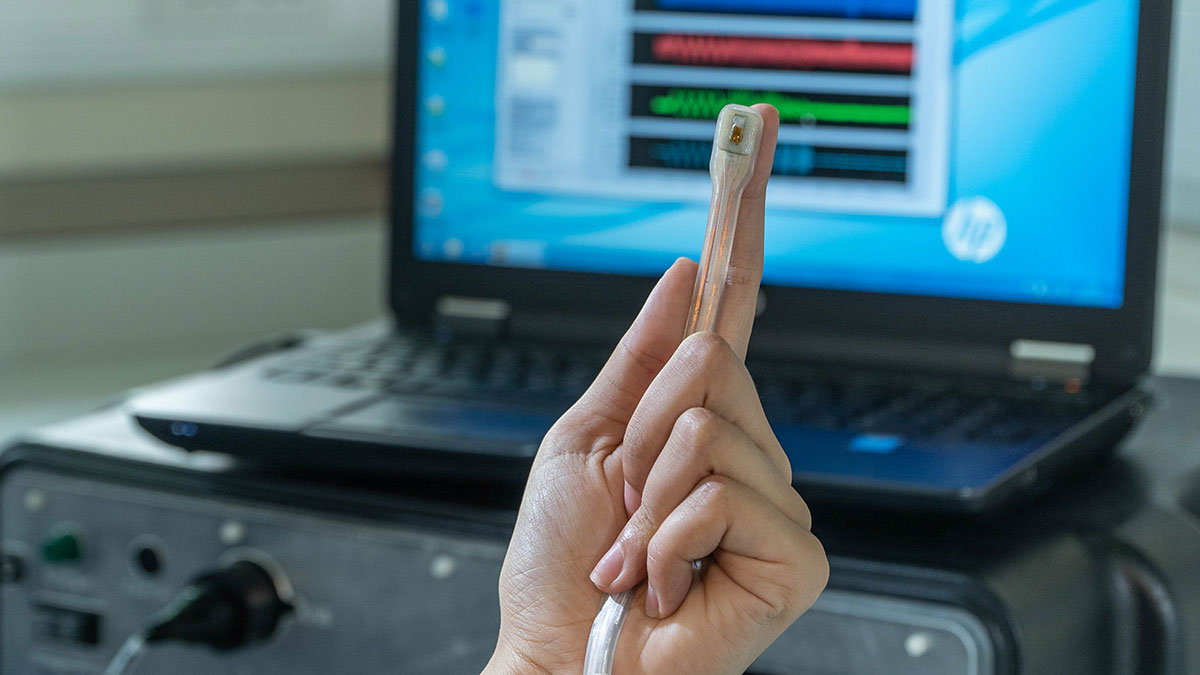Published:

A spin-out from Heriot-Watt and the University of Edinburgh has received £75,000 at the Scottish EDGE Awards for its innovation which is set to improve prostate cancer screening dramatically.
Scottish EDGE is the UK’s biggest funding competition aimed at small businesses with high growth potential. Twice a year, the scheme recognises some of the most innovative entrepreneurial talent in Scotland, offering funding as well as advice and support to nurture their continued growth. To date, the competition has supported 395 early stage businesses with awards totalling over £15 million. Only 5.5% of entrants received funding this month following multiple rounds of competition.
Working with NHS Lothian, IntelliPalp Dx has developed a device to provide more accurate early stage testing for prostate cancer, aimed at delivering improvements in diagnosis techniques. Initial trials suggest the technology provides a higher level of certainty for patients and delivers quicker results, reducing unnecessary anxiety. Initial trials also show patients prefer the technology to current methods.
Prostate cancer is the most common cancer amongst men in the UK, with as many as one in eight developing the disease during their lifetime.
Traditionally, a physical examination followed by prostate-specific antigen (PSA) testing is needed for a diagnosis. If the test is positive, a patient is referred for an MRI scan followed by a biopsy if results remain unclear. Biopsies can be painful with side effects including infection, bleeding and, in some cases, erectile dysfunction.
However, antigen testing often produces false positives and is not disease specific. Analysis suggests that, globally, around 4.5 million positive PSA tests result in biopsies every year. However, more than three-quarters of these patients do not have prostate cancer.
IntelliPalp Dx’s device, called ProstaPalp, addresses several of the issues inherent to this process. Rather than relying on a doctor’s subjective assessment, the technology allows for a more objective result, referring only those patients who are likely to have cancer for an MRI scan and biopsy.
By providing quicker and more accurate testing at an early stage, it is hoped the device will be able to streamline the process for the health service, allowing doctors to focus on further assessments and treatment for the patients who need it most.
The device was born out of collaborative research involving the School of Engineering and Physical Sciences at Heriot-Watt University, the Prostate Research Group at the University of Edinburgh, and the Department of Urology at the Western General Hospital in Edinburgh.
Femi Johnson, Heriot-Watt Research Associate and co-founder of IntelliPalp Dx, said: “The funding from Scottish EDGE is a gamechanger, helping us to accelerate the development of the ProstaPalp device. The technology presents an incredible opportunity to improve prostate cancer screening for both doctors and patients. Our work combines the sensitivity of human touch with the precision of a mechanical device. This is a complex engineering challenge but one which will offer immeasurable benefits to patients globally.”
Receiving the second largest award of the competition, IntelliPalp Dx is supported by GRID at Heriot-Watt University. GRID helps staff and students to build businesses out of their research while scaling companies during their commercialisation journey.
Paul Devlin, head of commercialisation at Heriot-Watt University, said: “Supporting transformative companies like IntelliPalp is exactly what GRID was set up to do. This company is a prime example of how Scotland’s scientific community continues to address leading global challenges. As Scotland strives to recover economically from the pandemic, companies like IntelliPalp will be essential as they continue to grow along their commercial journey. The recognition by Scottish EDGE underlines the significance of this work.”
CENSIS - Scotland’s centre of excellence for sensing and imaging systems and Internet of Things (IoT) technologies – has partnered with IntelliPalp Dx to further develop the design and manufacture of the ProstaPalp device. Optimising the sensor development will allow the company to accelerate the progression of the device into clinical practice.